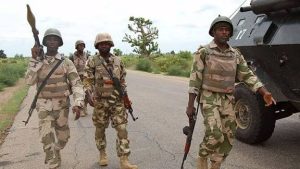
~Willy Okonji, Lagos:
Nigeria’s unemployment rate has risen to 5.3 percent in the first quarter of 2024, up from 5 percent in the third quarter of 2023, as the nation grapples with severe economic challenges. The National Bureau of Statistics (NBS) disclosed this in its recent Q1 2024 report, attributing the increase to rising operational costs that have caused many businesses to collapse or downsize.
The report highlighted that the unemployment rate was 6 percent in urban areas and 4.3 percent in rural regions. Unemployment among youth (aged 15-24) slightly decreased to 8.4 percent in Q1 2024, from 8.6 percent in Q3 2023.
However, the percentage of youth not in education, employment, or training (NEET) increased to 14.4 percent, up from 13.7 percent in Q3 2023. Notably, the NEET rate among females was 15.9 percent, higher than the 13 percent recorded for males.
The report also provided insights into working hours. Nationally, 1.5 percent of employed Nigerians worked between 1-9 hours per week, 4.8 percent worked 10-19 hours, 25 percent worked 20-39 hours, 22 percent worked 40-48 hours, and 46 percent worked over 48 hours per week.
Nigeria’s economic struggles are compounded by a nearly 30 percent inflation rate, with food prices, particularly rice, increasing by 35 percent in the past year.
The removal of fuel subsidies has further worsened the situation, tripling petrol prices and putting immense pressure on citizens. While the government has implemented measures like cash transfers to poorer households and attempts to regulate food prices, ongoing issues such as corruption and inadequate infrastructure continue to hamper progress.
As of 2023, 77.6 million Nigerians were engaged in informal employment, representing 92.2 percent of the employed population. Kano State had the highest number of informal workers, with 5.2 million individuals. The working-age population in 2023 stood at 116.6 million, with women accounting for 52 percent and men 48 percent.
The Labour Force Participation rate for 2023 was 76.3 percent, translating to 88.9 million individuals. Bauchi State recorded the highest participation rate at 92.3 percent, while Ekiti State had the lowest at 63.4 percent.



